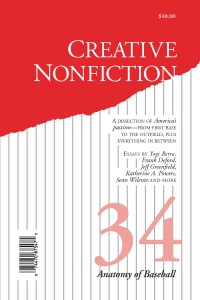

This week many critical eyes landed on the body of black women. Washington Post fashion writer Robin Givhan published
a piece criticizing Michelle Obama for the shorts she wore as she descended from Air Force One during a recent vacation. Although Givhan—who is black, a Pulitzer Prize winning journalist and a Detroit native—did not mention race in the article, that topic appeared blatantly and in the subtext of many of the readers’ comments on WAPO and on The Root.com where the article also appeared. Readers referred to Mrs. Obama as a primate, Aunt Jemima and more. The argument that she should step up her fashion game because she “represents the race” was also made by a reader who wrote: “As a proud, professional black woman (in DC), I am appalled by the image that she is projecting to the world. She is being held to a different standard than she would be if she were another ethnicity…”
Givhan wanted to talk about fashion, pleasing aesthetics, and American culture, but she should have known that it wasn’t just the aesthetics of Obama’s shorts that got some people upset, but the black body that was visible in those shorts. She’s too muscular, not muscular enough, her butt’s too big and on and on the readers wrote.
Even if we remove race from the discussion, I think Givhan’s argument about aesthetics is wrong. Givhan wants a more polished (her word) aesthetic for the first lady because “Hers is a life of responsibilities and privileges. She gets the fancy jet. She has to dress for the ride.” Ok fine, so an occasion or office dictates an aesthetic. But who gets to define the aesthetic? Givhan? Fashion critics? Maybe Michelle Obama rejects traditional and ultra-feminine aesthetics. Maybe it’s time for the institution of the first lady to evolve.
Also this week, the New York Times ran an
article about the politics of black hair, specifically black women’s hair. Last time I looked it was the Number 5 most read article on that site. That’s a lot of folks interested in black women’s hair. I don’t know, that topic gets a big yawn from me. I’ve worn my hair in many styles (straight and long, straight and short, locks, afro, twists) and while I recognize that there are politics that people associate with my hairstyles, I just don’t care what anyone thinks. I refuse to limit my options one way or another.
You can understand why women have so many issues with appearance when you see how much pressure we put on women to conform to certain norms. If you want to read a good blog on women and issues related to the body, go to
Made Nekkid. It’s a new blog, started by a friend, Want Chyi. The first post, "A Day at the Zoo," is a good example of how messages about how women should look can get into your head and seriously mess with you.















